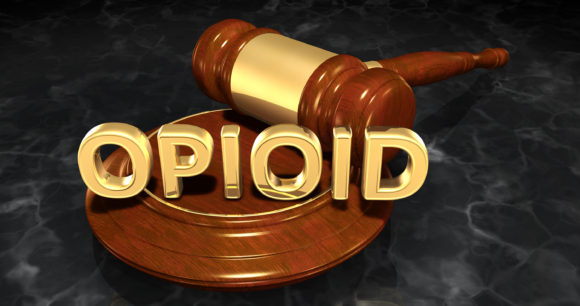States have secured about $720 million in settlements from eight pharmaceutical companies accused of fueling the opioid epidemic. The settlement was achieved as part of a nationwide collaborative effort by state attorneys general.
Individual states’ ultimate shares of the $720 million opioid settlement will vary based on factors including the impact of the opioid crisis within each state and how many states decide to participate in the settlement. Payments could begin in 2026. Current estimates of what some Northeast states may receive include :
- New York $38.7 million
- Pennsylvania $28 million
- Maryland $24.5 million
- New Jersey $19.8
- Massachusetts $17 million
- Virginia $16.4 million
- Connecticut $8.4 million
- New Hampshire $4.5 million
- Rhode island $3 million
- Vermont $1.8 million
The eight defendant companies and the amounts they will pay are:
- Mylan (now part of Viatris) will pay $284,447,916 over nine years;
- Hikma will pay $95,818,293 over one to four years;
- Amneal will pay $71,751,010 over 10 years;
- Apotex will pay $63,682,369 in a single year;
- Indivior will pay $38,022,450 over four years;
- Sun will pay $30,992,087 in one to four years;
- Alvogen will pay $18,680,162 in a single year; and
- Zydus will pay $14,859,220 in a single year
The eight companies will also provide $14 million in additional funding and Mylan, Hikma, Amneal, and Indivior will provide opioid addiction treatment medications or cash in lieu of this product to participating states valued at approximately $86 million.
Also under the agreement, all of the companies besides Indivior will be prohibited from promoting or marketing opioids and opioid products and making or selling any product that contains more than 40 mg of oxycodone per pill. They must also put in place a monitoring and reporting system for suspicious orders. Indivior has said it will not manufacture or sell opioid products for the next 10 years, but it will be able to continue marketing and selling medications to treat opioid addiction.
The settlements were negotiated by North Carolina, California, Colorado, Illinois, New York, Oregon, Tennessee, Utah, and Virginia.
The funds are intended to deliver critical resources to communities throughout the nation to combat the ongoing opioid crisis.
“Years ago, pharmaceutical companies exploited Virginians, treating them like test subjects while pushing dangerous, addictive drugs into our communities while lining their pockets,” Virginia Attorney General Jason Miyares said in a statement.
“For years, drug companies prioritized profits at the expense of struggling New Yorkers who became trapped in deadly opioid addictions,” said New York Attorney General Letitia James. “While communities throughout our state continue to suffer from the opioid crisis, these resources will help us begin to heal.”
According to the Centers for Disease Control (CDC), while there has been some progress in fighting the opioid epidemic, it is far from over. Preliminary CDC data released in May showed there were an estimated 80,391 drug overdose deaths nationwide in 2024, a nearly 27% decrease from 2023. That downward trend is expected to continue.
However, some states are still dealing with high rates of opioid prescribing and overdose deaths, and still others have reported increases recently.
The CDC cites continued public education, changes in opioid prescribing practices and greater access to the medication Naloxone that reverses opioid overdose as among the factors contributing to progress against the epidemic. However, the CDC has warned about illegal fentanyl and counterfeit pills containing dangerous substances as playing a increased role in the overdose deaths.
Was this article valuable?
Here are more articles you may enjoy.



 How One Fla. Insurance Agent Allegedly Used Another’s License to Swipe Commissions
How One Fla. Insurance Agent Allegedly Used Another’s License to Swipe Commissions  Florida Insurance Costs 14.5% Lower Than Without Reforms, Report Finds
Florida Insurance Costs 14.5% Lower Than Without Reforms, Report Finds  Gun Accessory Company to Pay $1.75 Million to Buffalo Supermarket Shooting Victims
Gun Accessory Company to Pay $1.75 Million to Buffalo Supermarket Shooting Victims  Experian Launches Insurance Marketplace App on ChatGPT
Experian Launches Insurance Marketplace App on ChatGPT 

